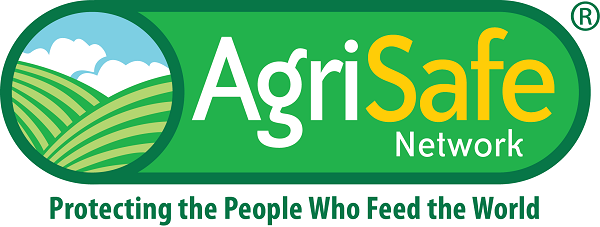AgriSafe Learning
Heat and Wildfire Smoke Exposure Among Agricultural Workers: Examining Exposure Risk and Potential Strategies to Protect Workers
-
Register
- Non-member - Free!
- Member - Free!
Summary: Heat and wildfire smoke has become a persistent health threat for agriculture workers. This webinar will focus on understanding the risks of exposure to wildfire smoke and heat and potential strategies for protecting agricultural workers. In addition, participants will learn about a unique research partnership utilized to co-develop and communicate safety and health information to agricultural workers.
Intended Audience: Agricultural farmers, ranchers, supervisors, farmworkers, farmworker organizations, health and safety professionals, trainers, promotores, rural healthcare providers, extension agents, and others who work in agriculture.
Objectives: At the end of this webinar, participants will be able to...
• Describe the risk factors for exposure to heat and wildfire smoke to farmworkers.
• Describe solutions to prevent heat-related illness that can be implemented in agricultural work environments.
• List best practices for protecting agricultural workers' health during wildfire conditions.
• Learn how partnerships with community-based organizations can help communicate safety and health messages to agricultural communities.
Live interpretation in Spanish will be available for this session.
Elizabeth Torres
Director of Operations & Research Coordinator
El Proyecto Bienestar (EPB)
Elizabeth Torres is a public health professional with over twenty years of experience in public health. Her interest has been to work in the low-income and farm worker communities to reduce environmental health disparities and improve health outcomes for her community in the Yakima Valley of Washington State. Ms. Torres’ expertise is in implementing community-driven and community-engaged research and public health practice projects to build a healthy, thriving community. She is a bicultural, bilingual, and a trusted public health messenger in her community. She has a proven record in community-based participatory research projects ranging from indoor air quality and pediatric asthma, occupational exposure and health (such as pesticide exposure, heat-related illness), and COVID-19 (risks, symptoms, preventions strategies, and vaccination).
For the last twelve years, Ms. Torres has been the Research Coordinator for El Proyecto Bienestar (EPB), a community-based collaborative partnership based in the Yakima Valley, a highly productive agricultural region in WA State. The EPB program links the Yakima Valley Farmworkers Clinic, Northwest Communities Education Center, Heritage University, and the University of Washington Pacific Northwest Agricultural Health and Safety (PNASH) Center, a NIOSH-funded agricultural center. The EPB mission involves identifying, prioritizing, and responding to occupational and environmental issues facing the Hispanic agricultural workers and their families in the Yakima Valley. As the EPB community advisory board coordinator, Ms. Torres facilitates new partnerships and conversations to bring diverse voices to the table. Ms. Torres also serves as the main community liaison between study participants and the broader EPB team, responsible for arranging and facilitating the Community Advisory Board (CAB) meetings.
John Flunker, PhD, MPH, MS
Post-Doctoral Scholar
University of Washington's Pacific Northwest Agricultural Safety and Health Center
Dr. Flunker is an environmental and occupational epidemiologist specializing in exposure assessment, exposure-outcome modeling, and working with vulnerable populations. In partnership with industry and community stakeholders and through collaborations with multi-disciplinary research teams, he has cataloged factors related to adverse health outcomes and implemented evidence-based workplace interventions among Latino thoroughbred horse farm workers, elucidated the relationship between resource extraction particulate exposures and respiratory health experienced by residents of rural Appalachia Kentucky, and co-led a Maryland casino worker occupational safety research feasibility study designed to explore under-reported industry hazards. His current research examines wildfire smoke, heat stress, and associated safety and health outcomes among agriculture workers and residents. Dr. Flunker is currently a postdoctoral fellow at the University of Washington's Pacific Northwest Agricultural Health and Safety and Health (PNASH) Center.
Key:
Quick Search
Technical Difficulties
Submit a help ticket if you need technical assistance.
Having Computer Issues? Please check your internet browser and security settings to allow permissions for this website. Browsers: Microsoft Edge version 40 or higher; Chrome version 60 or higher, Firefox version 50 or higher; or Safari version 10.1 or higher. We recommend using Google Chrome or Firefox as your browser.
